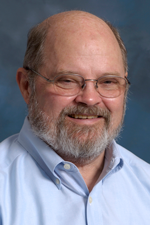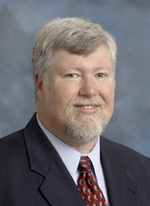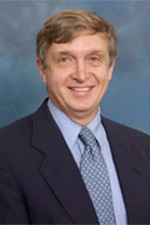Energy Balance Study will focus on the reasons for 'what's driving the obesity epidemic' in the United States
July 12, 2011

Steve Blair

Greg Hand

James Hébert
Too many calories, too few steps: Why do Americans continue to gain weight?
A study by researchers at the University of South Carolina's Arnold School of Public Health is seeking the answer. And they're recruiting 400 men and women between the ages of 21 – 35 to help.
Their work is timely.
A report this month by the Trust for America's Health and the Robert Wood Johnson Foundation finds that obesity rates have increased in 16 states since last year. Twelve states, including South Carolina, have obesity rates above 30 percent; four years ago, only one state had an obesity rate higher than 30 percent.
The Arnold School's Energy Balance Study, funded by a three-year, $2.5 million grant from Coca-Cola, will examine calorie intake and activity to determine "what's driving the obesity epidemic," said Dr. Steve Blair, the study's lead investigator and a past president of the American College of Sports Medicine.
"No empirical evidence exists to let us know that the increase in weight is from the consumption of too many calories or that it is caused by a lack of physical activity," said Blair, who is on the faculty in the department of exercise science and the department of epidemiology and biostatistics. "We want to collect more complete data so that we can have a full understanding of what's going on."
The other researchers on the grant are exercise science professor Dr. Greg Hand, the Arnold School's associate dean for research, and epidemiologist Dr. James Hébert, director of the Cancer Prevention and Control Program at USC's Arnold School.
When researchers look at the amount of food that Americans consume, they know that generations of people with average weight have had diets high in calories. But Americans have become less active at work and in their leisure time, Blair said.
"There has been a decline in occupational energy as manufacturing and farming jobs have become fewer," Blair said. "Many people aren't as active in their spare time. We have engineered energy expenditure downward."
Participants in the study will be asked to fill out questionnaires about the foods they've eaten and have measurements taken, including height, weight, waist circumference, blood pressure and body fat. They also will wear a small armband on the upper arm to measure how many calories they are burning and a small monitor on the leg to measure the amount of time spent lying down, sitting, and standing. In addition, they will have a treadmill test to measure fitness and also will complete a laboratory assessment of their resting metabolic rate.
Participants who complete the study will receive a free personalized report of their fitness, exercise habits, caloric intake/use and body mass index; a free counseling session to explain their results; and up to $500 cash for their efforts.
To learn more, visit http://energybalance.sc.edu.



_01.jpg)
_02.jpg)